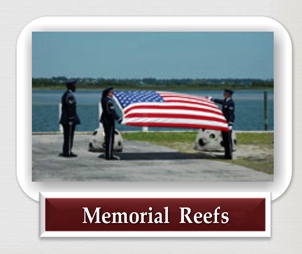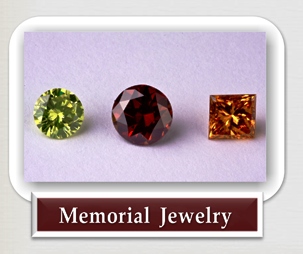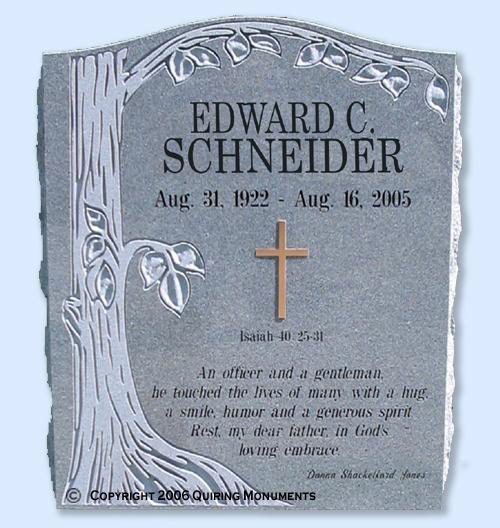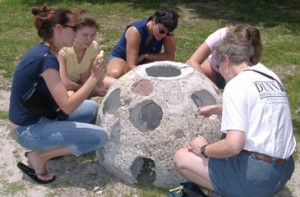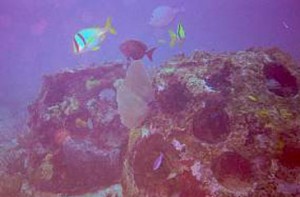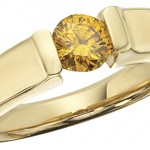Cremation Memorials
Cremation Memorials Help the Bereaved
Psychologists and counselors have been researching the effects of grief and loss with more frequency over the past century. They are finding tangible positive effects of bereavement on the family members. The positive healing effect can be explained when it is recognized that art expresses that which cannot be expressed through just words. Grief often lies beyond words, beyond simple explanations of our conscience minds. It is in the unconscious that expression of deep wounds and tragedy of loss is found. Grief cannot be reduced to the rationale. Art can speak to us and facilitate the connection with what is going on inside of our minds as we grieve to help us through the process.
Julie A. Burn, Director of Cremation Services for the International Cemetery, Cremation and Funeral Association, says today’s families have more choices than ever before. “It’s important for families to take the time to grieve their loss and to find a way to remember the life that was lived, regardless of whether they are choosing cremation or traditional funeral and burial,” Burn said. “Today’s cremation services offer many ways to honor the deceased, and so I would encourage families to be sure to ask the funeral home and the cemetery what their options are for creating tributes and memorials that are personalized and have meaning to them.”
It is expected that the Funeral Directors become an active part of the presentation of the Cremation Memorial in order to facilitate these benefits.
The Funeral Directors are expected to:
- Become educated on the processes involved with creating the memorials
- Gain a personal confidence in the company creating the memorials
- Getting the sample of the cremated remains to the artist
- Receive back the remainder of the cremated remains when the work is complete
Adding the additional service as an option to the families adds an additional source of income to add to the bottom line of the business. The artisans producing the memorials typically recognize that the contributions of the Funeral Director are essential in making the transaction. When the Funeral Directors have invested time into learning about the product and are able to represent the benefits to the family and confidence in the company handling the cremated remains that is when the families really consider the option. Additional value is added to the families when the handling of the cremated remains is taken care of too. The samples of remains are sent to the artist and the remaining cremated remains are received back when the work is complete.
Types of Cremation Memorials
Several new memorial technology options have been used as a medium to incorporate cremated remains, for example:
Memorial Diamonds
Man made diamonds are molecularly identical to naturally occurring diamonds. By recreating the forces of nature to the primary element of all diamonds, carbon, a diamond can be made. General Electric first pioneered this technology in the mid 1950’s.
By using the carbon from the cremated remains or a lock of hair, memorial diamonds can be created to forever encase the cremated ashes in a unique and beautiful memorial.
To create the memorial diamond, the carbon is heated to extremely high temperatures. This step removes the existing ash and converts the carbon to graphite with the unique characteristics and elements that will create the diamond. The graphite is then placed in a press capable of replicating the forces in the earth, heat and pressure. The pressure needed is nearly 1,000,000 psi and the temperatures are up to 3000 degrees centigrade. In approximately 70 days, depending on the size of the memorial diamond you wish to create, the resulting rough diamond crystal grows. When the rough diamond is ready, skilled diamond cutters facet the memorial diamond according to the families’ selection. The diamonds can be inspected and graded by trained gemologists, the same process used by the world’s finest jewelers.
These memorial diamonds are typically available in sizes from .25 ct. to 1.5 ct. The colors that these memorial diamonds can be created range from blue to red to yellow to green.
Keepsake Jewelry
Keepsake jewelry is a small urn that can be worn as jewelry or hung in a display. It has a small area inside to hold a memorial to the loved one, like cremated remains for example. Keepsakes were first introduced by Madelyn Pendants in 1992. Joni Cullen and Lisa Saxer-Buros created keepsakes when they lost their friend and mother Madelyn Saxer. From Madelyn Saxer’s zest for living and her ability to embrace death, the concept of the Keepsake Pendant was born: A symbol of continuing love, a reassuring remembrance to keep close to one’s heart. In creating the pendant line, they had a simple purpose: to enable others to cope more easily, to hold a source of comfort in their hands and to find peace in their hearts. The keepsakes were initially intended for cremains but Joni and Lisa soon realized that was limiting the benefits of the keepsakes which also hold locks of hair, funeral flowers and other personal items.
The death care industry has used the term Keepsakes for so long now that it has come to be synonymous with all Cremation Memorials. When Madelyn Pendants started marketing the keepsakes there were no other cremation memorial options available to the families. They had to coin the term because there was not a name for the niche yet. The acceptance to the keepsakes has been steadily growing since they were introduced. If initiation is flattery then Joni and Lisa have been flattered. Today there are a number of companies producing and marketing keepsake jewelry.
Keepsake Urns
Once keepsake jewelry started to catch on there was a recognition that the families could benefit from Cremation Memorials. The urn companies began introducing lines of small urns. The small urns, keepsake urns were designed to hold a portion of the cremated remains. The funeral directors and urn resellers were able to fill the need of the families to provide a way to create multiple memorials to the loved ones. Family members do not all live around the same cemetery or crematorium, in fact they often live in different cities and states. The families still have the natural need to for a memorial. Cremation urns fill this need perfectly. Families often request several keepsake urns for all the family members.
Cremation urns come in as many forms and shapes and made of as many materials as urns have come to be found in. And the variety is increasing.
Cremation Painting
Cremated remains are combined with the paint used to create a memorial painting. The artists can paint a portrait of the loved one, a landscape or still life that invokes memories of the loved one. Because the art is individually commissioned the size, form and subject can be personalized to the families needs. This is one of the newest Cremation Memorial mediums that have come available to families. It is testament to the even larger variety of memorialization options that families will be presented in the future.
Memorial Pottery
Pottery work that incorporates cremated remains into the clay or into the glaze that become the memorial. As with the Cremation Paintings, the pottery form of memorialization takes on a very personal nature. The individually commissioned pieces are designed to reflect the essence of the loved one as well as contain the cremated remains.
